Supporting Research
By ucylr22, on 20 December 2016
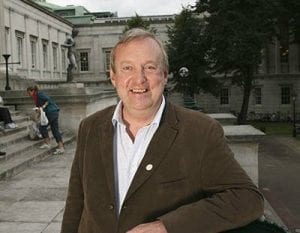 UCL announced on 17th November 2016 that UCL Library Services moved from UCL Professional Services to report to the Vice-Provost (Research), Prof David Price. Dr Paul Ayris, Director of UCL Library Services, has been appointed Pro-Vice-Provost.
UCL announced on 17th November 2016 that UCL Library Services moved from UCL Professional Services to report to the Vice-Provost (Research), Prof David Price. Dr Paul Ayris, Director of UCL Library Services, has been appointed Pro-Vice-Provost.
As Pro-Vice-Provost, Dr Ayris will develop UCL’s scholarly communications offering, building on the current successes of the Open Access activity, UCL Press and research data management; and continue the Library’s activity in collection management and collection building, in both paper and digital formats, while seeking out collaborations with other collections, both in UCL and further afield in London. Dr Ayris will continue to be an ex officio member of the UCL Senior Management Team.
The Library Strategy lays down that our Mission is to ‘Provide an information infrastructure to enable UCL’s research and education to be world class’. The new reporting line better reflects the Library’s mission as an academic support division.
Recently, Dr Ayris has served as President of LIBER, the Association of European Research Libraries. He also chairs the UK Negotiation Team for JISC Collections which has struck a multi-million pound deal with the publisher Elsevier for access to Science Direct.
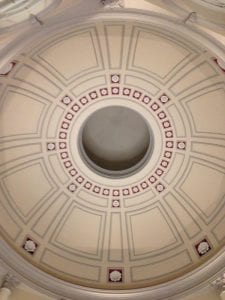
Dr Ayris said:
“These changes reflect the success of the Library Strategy and the great visibility that our facilities and services have across the whole of UCL. They underline the strong, historic links between the Library and UCL’s activity in teaching, learning and research. We will continue to enjoy collegial links with UCL Professional Services. I have been asked, for example, to carry on as co-chair of the Organising Committee for the UCL Professional Services Conference in February 2017.”
Professor Price commented:
“Since his appointment in 1997, Paul’s service as Director of UCL Library Services has been as model of how Professional Services can work to support the university’s core academic and research mission. He is a true leader – and internationally recognised as one – in such areas as scholarly communication, open access, research data management and innovation in collections management. Paul’s appointment as Pro-Vice-Provost in my office is a welcome recognition of his outstanding service and, more importantly, his team’s potential to make an even greater contribution to UCL’s research and academic performance.”
Update on the delivery of the Library Services Strategy
The Library Leadership Team met in November to review progress against the objectives set in the Library Strategy 2015-18, halfway into the lifecycle of the strategy.
The Implementation Plans, which underpin the Strategy, contain 90 Action Lines which are regularly reviewed by the Leadership Team.
| KPAs 2015 -18 | Action Lines | Green | Amber | Red | Done |
|---|---|---|---|---|---|
| 1 | 18 | 11 | 1 | 0 | 6 |
| 2 | 20 | 10 | 1 | 0 | 9 |
| 3 | 14 | 11 | 0 | 0 | 3 |
| 4 | 15 | 10 | 2 | 0 | 3 |
| 5 | 10 | 5 | 3 | 0 | 2 |
| 6 | 13 | 8 | 1 | 0 | 4 |
| Total | 90 | 55 | 8 | 0 | 27 |
At our last meeting, we recorded that 27 of the Actions had been completed, 55 were healthy and ongoing (and so marked Green), 8 were awaiting development (Amber) and none had failed (Red). These figures are good, and in the remaining 18-24 months of the Strategy period the emphasis will be on turning more Green Actions into Completed Actions. The table above provides a sense of the achievements of Library Services over the past two years, which have been underpinned by some outstanding work by Library Services staff who have been working to complete the ambitious goals set out in the strategy and consistently delivering excellent services to our users.
by Benjamin Meunier, Assistant Director (Public Services) & Martin Moyle Assistant Director (Support Services)
 Close
Close


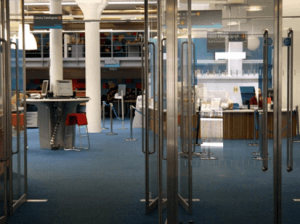 Learning Lab – Work on the Learning Lab started on Saturday 26th November 2016 with contractors Sykes & Sons.
Learning Lab – Work on the Learning Lab started on Saturday 26th November 2016 with contractors Sykes & Sons.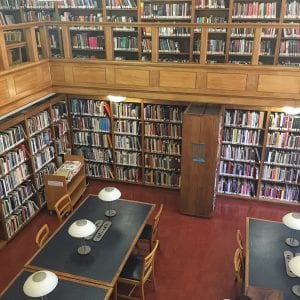

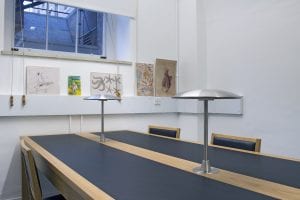 The new reading room for Special Collections and Records materials is now open near the South Junction on the lower ground floor of UCL’s Wilkins Building, and provides a specially equipped, secure space for accommodating both readers and small groups for academic support and outreach.
The new reading room for Special Collections and Records materials is now open near the South Junction on the lower ground floor of UCL’s Wilkins Building, and provides a specially equipped, secure space for accommodating both readers and small groups for academic support and outreach.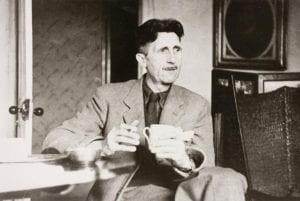

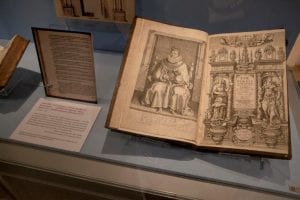

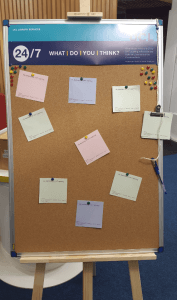 In my role as Head of Customer Service I am responsible for the strategic development and delivery of excellent customer service across UCL Library Services. I lead the Customer Service Teams for the Main and Science Libraries and I also work closely with the Head of Site Library Services, the Head of Liaison and Support Services, plus the Librarians at the Institute of Education and the School of Slavonic and East European Studies.
In my role as Head of Customer Service I am responsible for the strategic development and delivery of excellent customer service across UCL Library Services. I lead the Customer Service Teams for the Main and Science Libraries and I also work closely with the Head of Site Library Services, the Head of Liaison and Support Services, plus the Librarians at the Institute of Education and the School of Slavonic and East European Studies.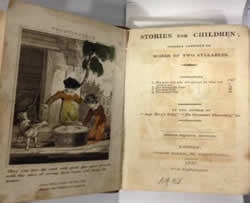
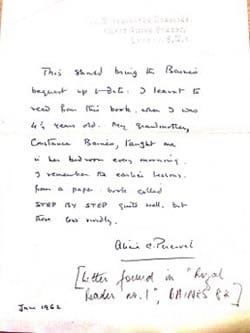

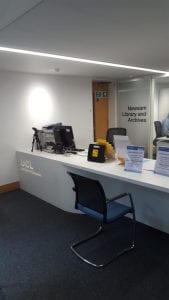 It was a hectic summer for us here in the
It was a hectic summer for us here in the